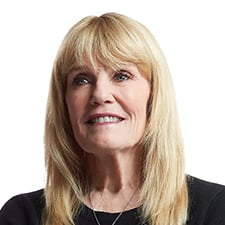When the COVID-19 pandemic struck, restricting patients to the relative safety of their homes, physicians raced to adopt telehealth to continue delivering care.
But Oklahoma psychiatrist Jenny L. Boyer, MD, PhD, was ahead of the pack. She has been doing full-time telemedicine for the Veterans Health Administration since 2018.
Now the Immediate Past Chair of AMA Senior Physicians Section Governing Council, Dr. Boyer, 73, practices telemedicine full-time as a staff psychiatrist for the VA West Texas Healthcare System. Her views, as expressed here, do not represent the VA.
After years as deputy chief of behavioral medicine at East Oklahoma VA Healthcare System, Dr. Boyer sought out telemedicine as a career change and a way to reengage with more patient care.
“I looked for places where they actually had full-time telepsychiatry,” she said. “And my children and grandchildren moved back to Norman, Oklahoma—so I moved back to Norman, Oklahoma, and this enabled me to have the lifestyle as the matriarch of the family.”
She is able to structure a Monday–Thursday workweek of 10-hour days caring for patients via telemedicine and has a three-day weekend to spend with family.
“I work in my socks,” Dr. Boyer told the AMA. In a single day, Dr. Boyer is likely to see veteran patients who live in Abilene, Texas, or as far away as Hobbs, New Mexico—nearly 500 miles from her home office.
Supporting telehealth is a critical component of the AMA Recovery Plan for America’s Physicians. You took care of the nation. It’s time for the nation to take care of you. It’s time to rebuild. And the AMA is ready.
Telehealth is critical to the future of health care, which is why the AMA continues to lead the charge to aggressively expand telehealth policy, research and resources to ensure physician practice sustainability and fair payment.
Value of telepsychiatry
After years working as an administrator at a different VA health system, Dr. Boyer has been gratified by the opportunity that telemedicine has given her to fully employ her diagnostic and clinical skills to improve the lives of patients.
Though Dr. Boyer said she would practice in person if telepsychiatry were unavailable, given the shortage of psychiatrists in the country and in the VA system, it is much to patients’ benefit that Dr. Boyer has the option to practice through this mode of care.
“There's a lot of satisfaction in seeing patients get better, and psychiatry is an area where disorders are diagnoseable and treatable and people do get better. And for me personally, it's that I see pretty complicated patients so it's kind a challenge,” she said.
“A lot of times I see patients that have seen primary care, and then the pharmacist, and then the nurse practitioner and the PA [physician assistant] and, finally,” she said, “they get sent to me to do an initial psychiatric evaluation, where I try to figure out the diagnosis.”
“I've seen a lot of patients for psychotherapy and medicine, but the patient’s issues have become more general medical—such as COPD, diabetes, cardiac, infections, neurological, chronic pain—than ever in the past.”
Patients may have a psychiatric disorder, such as bipolar disorder, major depression, schizophrenia or post-traumatic stress disorder, but those disorders are linked to general medical disorders and substance-use disorders as well.
“Thus,” Dr. Boyer explained, “patients have need for a physician, and not a lesser-trained professional, as they have at least three levels of diagnosis,” relating to their psychiatric, general medical and substance-use disorder conditions.
“Generalized anxiety is probably the most common psychiatric diagnosis, which often starts later in life for many. This is different than other psychiatric illnesses, which begin in adolescence or childhood. Also common are generalized anxiety and major depression secondary to general medical disorders,” she said. “For example, anxiety is present because of uncontrolled diabetes or COPD. Insomnia is secondary to sleep apnea.”
Dr. Boyer will work with patients to control their type 2 diabetes and lose weight, as well as using a continuous positive airway pressure device to treat sleep apnea.
“I use psychotherapy to challenge barriers to change,” she added, and will often ask patients to reduce alcohol intake, because alcohol can create the very insomnia patients often try to self-manage by drinking.
Learn more with the AMA about behavioral health in physician practices.




